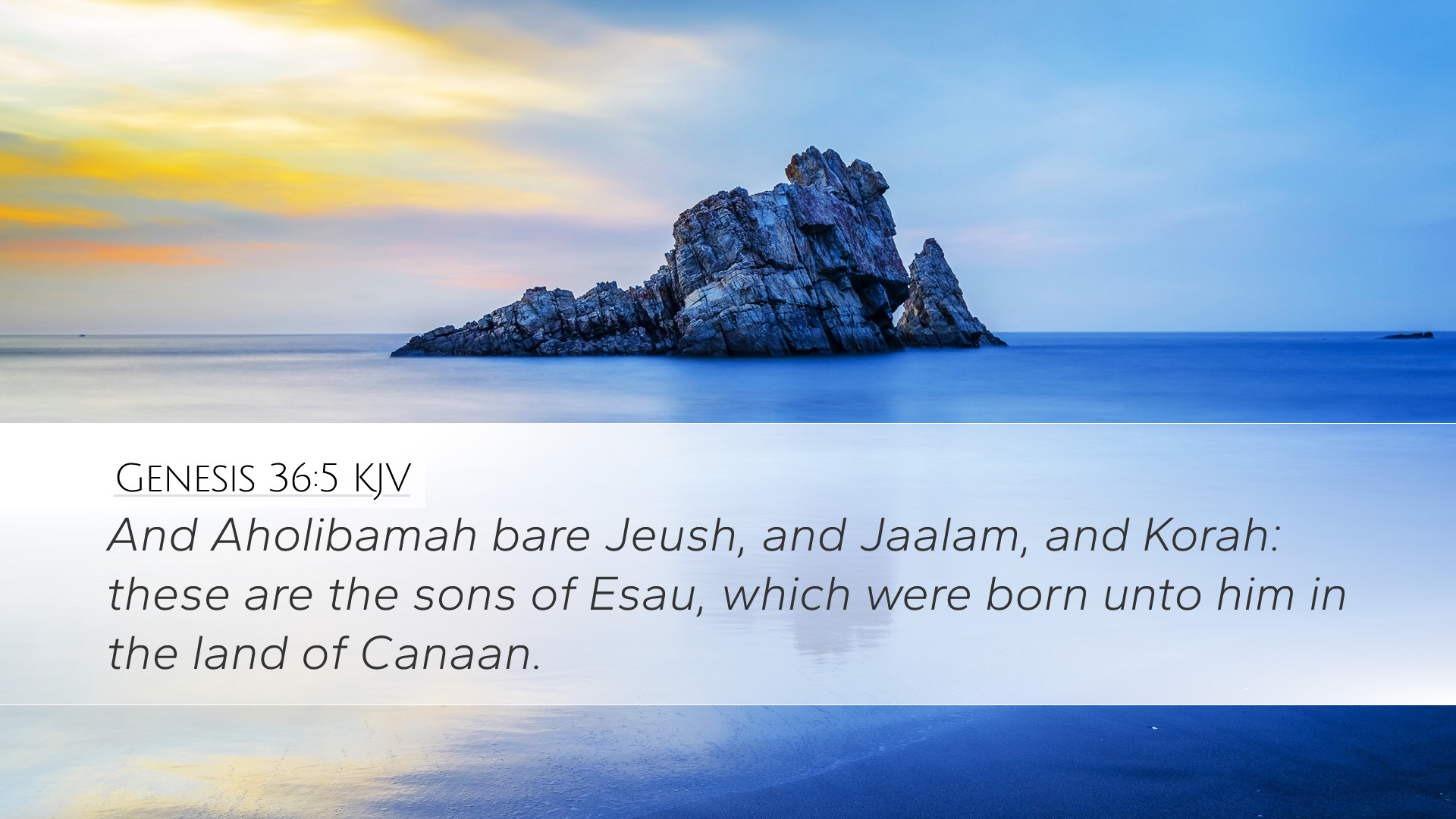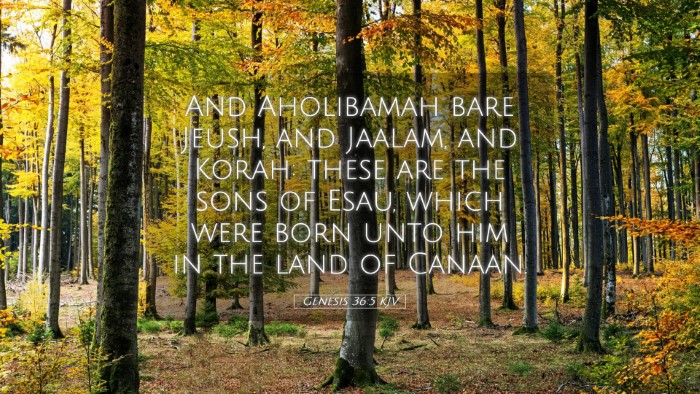Genesis 36:5 - Introduction
Genesis 36:5 presents a genealogical record that is pivotal for understanding the descendants of Esau, Jacob’s brother. This verse encapsulates not just a lineage but also the narrative of a people and their distinct contributions to biblical history. The name "Esau" is significant as it denotes a complex character, both beloved and viewed with ambivalence in the larger narrative of scripture.
Commentary Overview
Many public domain commentaries provide deep insights into Genesis 36:5. Here we will synthesize thoughts from Matthew Henry, Albert Barnes, and Adam Clarke, offering a comprehensive examination suitable for pastors, students, theologians, and biblical scholars.
Matthew Henry's Commentary
Focus on Esau's Lineage: Matthew Henry highlights that Genesis 36:5 is part of the genealogy of Esau, effectively showing the fulfillment of God’s promise regarding the increase of the nations descended from him. Esau's descendants, known as Edom, formed a significant nation, akin to that of Israel. Henry notes that this lineage is important as it illustrates both the physical and spiritual descendants of Abraham.
Treatment of Names: Each name listed has implications, reflecting the character and background of these figures. Henry points out that genealogies serve to connect past narratives with the present, reminding the people of Israel of their roots and heritage. He emphasizes that understanding these names is essential in grasping the historical context of the Israelites' relationship with Edom.
Albert Barnes's Commentary
Historical Context: Albert Barnes connects Genesis 36:5 to the broader historical narrative, noting that the Edomites were often in conflict with Israel. He emphasizes that this verse marks the establishment of a distinct identity that was often at odds with Jacob's descendants. The mention of Esau's sons signifies the foundation of Edom, which later becomes significant in biblical history, especially during the periods of the kings.
Worship and Idolatry: Barnes also comments on the potential for idolatrous practices among the descendants of Esau, contrasting them with the covenant people of Israel. As a theologian, Barnes raises concerns about the spiritual state of the Edomites in relation to their ancestry, providing a cautionary tale regarding the abandonment of true worship. He asserts that while God had a plan for Edom, they veered from divine guidance, leading to their eventual downfall.
Adam Clarke's Commentary
Genealogical Importance: Adam Clarke emphasizes the importance of genealogies in the ancient Near Eastern context, arguing that they serve to legitimize claims to land, power, and hereditary privileges. Clarke points out that the detailed listing of names serves to validate the importance of Esau and his descendants in the narrative of God's covenant history. Each name encapsulates a story and heritage that contributes to the rich tapestry of biblical history.
Theological Reflections: Clarke also reflects on the theological implications of this verse, indicating that the listing of Esau's descendants can be viewed as part of God’s providential ordering of nations. He argues that the genealogies, while sometimes tedious, are foundational to understanding God's sovereign hand in the history of Israel and the surrounding nations. The mention of diverse tribes and leaders underscores God's care for all nations, redeeming their stories within the larger narrative of salvation.
Conclusion
In conclusion, Genesis 36:5 serves as a vital reminder of the significance of genealogies in scripture. The combined insights from Matthew Henry, Albert Barnes, and Adam Clarke highlight the importance of Esau and Edom’s legacy, as well as the broader theological themes of identity, heritage, and divine sovereignty. Understanding this verse enriches one’s study of the Old Testament and provides essential context for the development of Israel's story and their relationship with neighboring nations.
Pastors and theologians can draw upon these interpretations to emphasize the continuity of God’s promises across generations, the significance of heritage in understanding faith, and the complexities that come with human relationships and divine intentions. The exploration of Genesis 36:5 encourages readers to appreciate the multifaceted narratives within scripture and their relevance to contemporary faith and practice.


